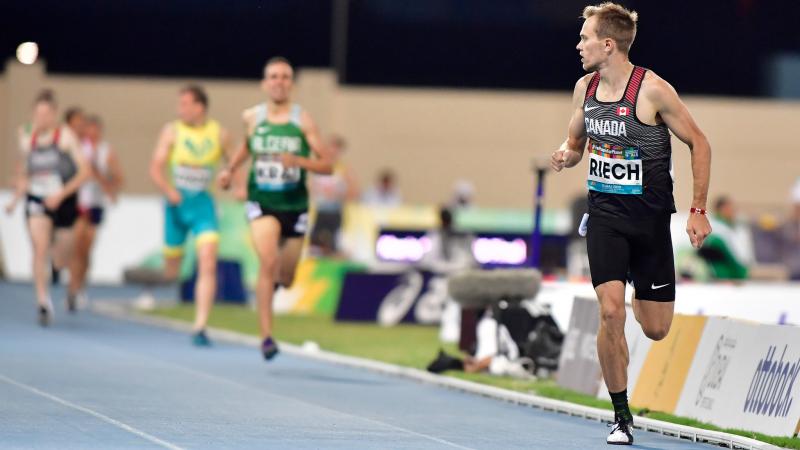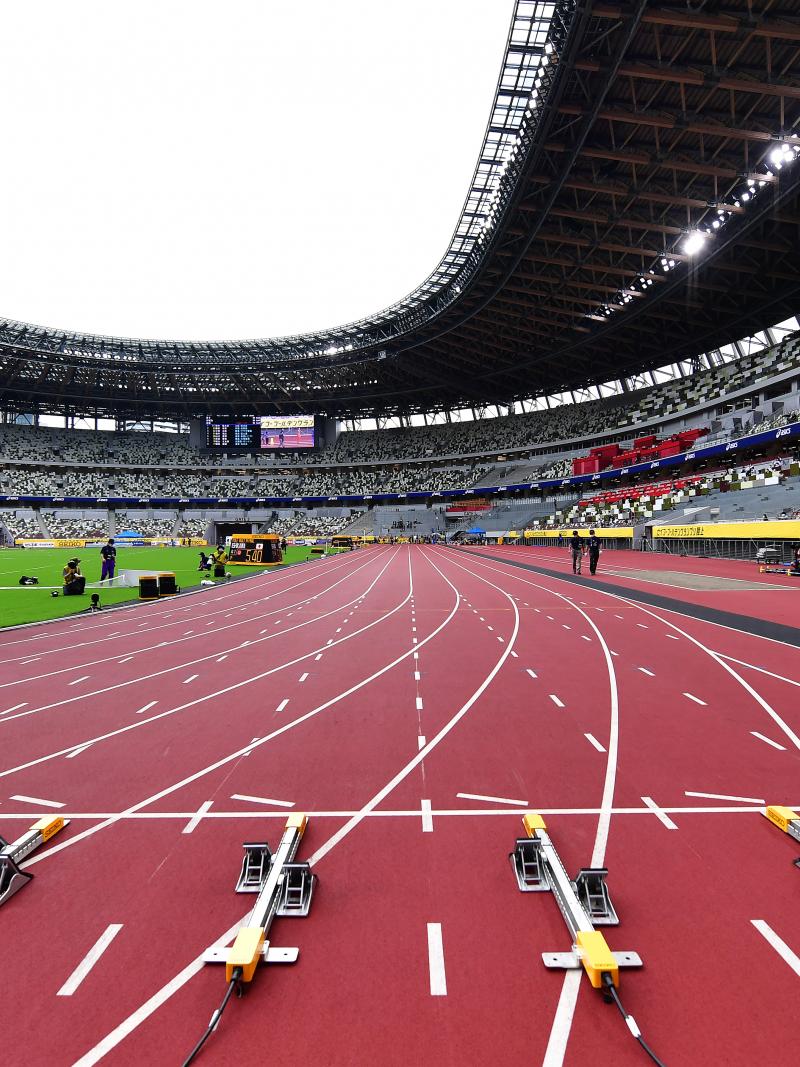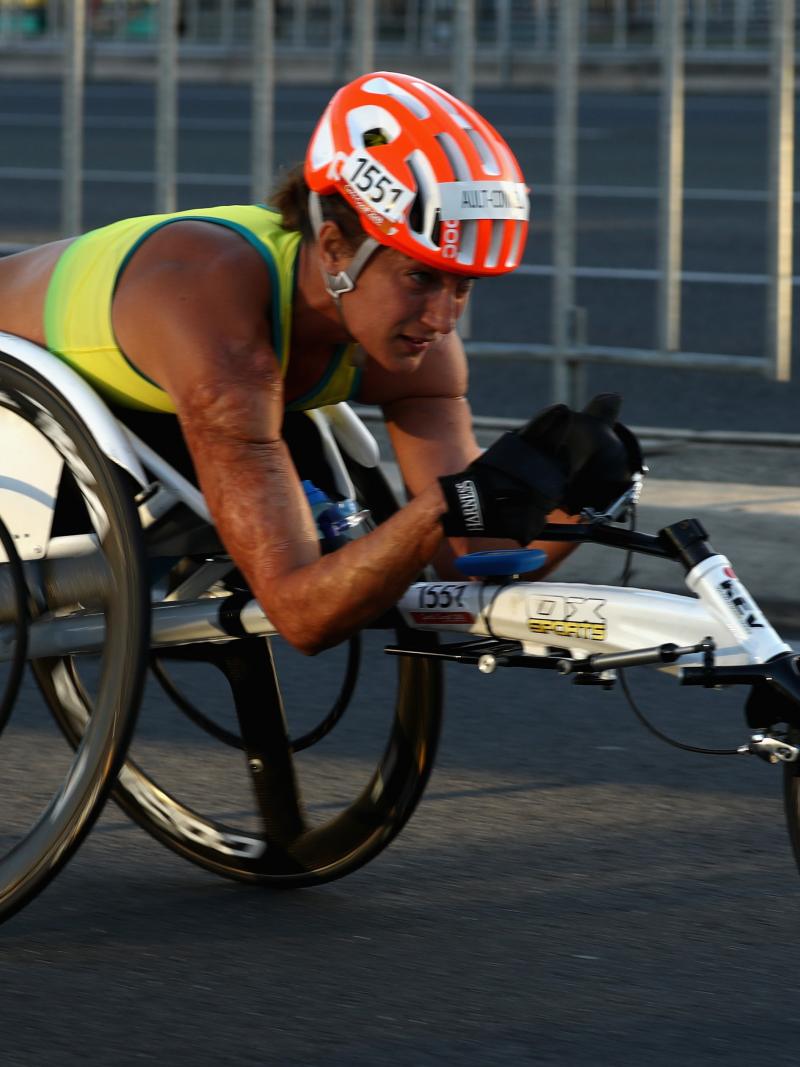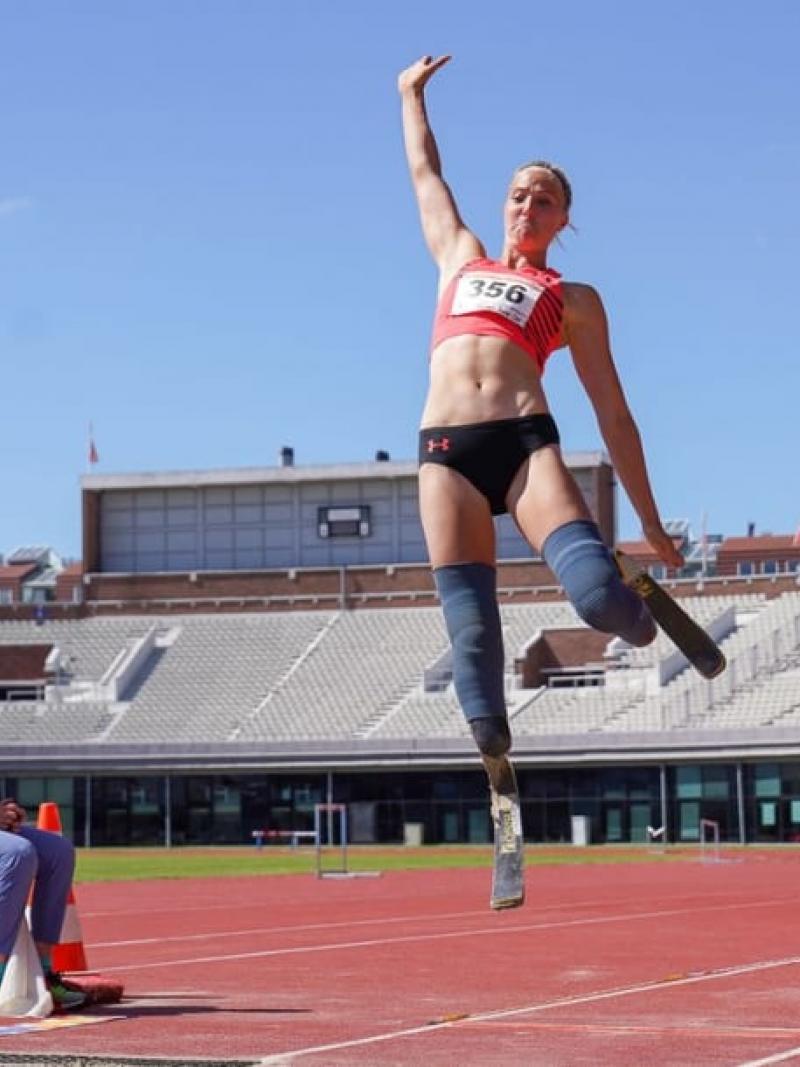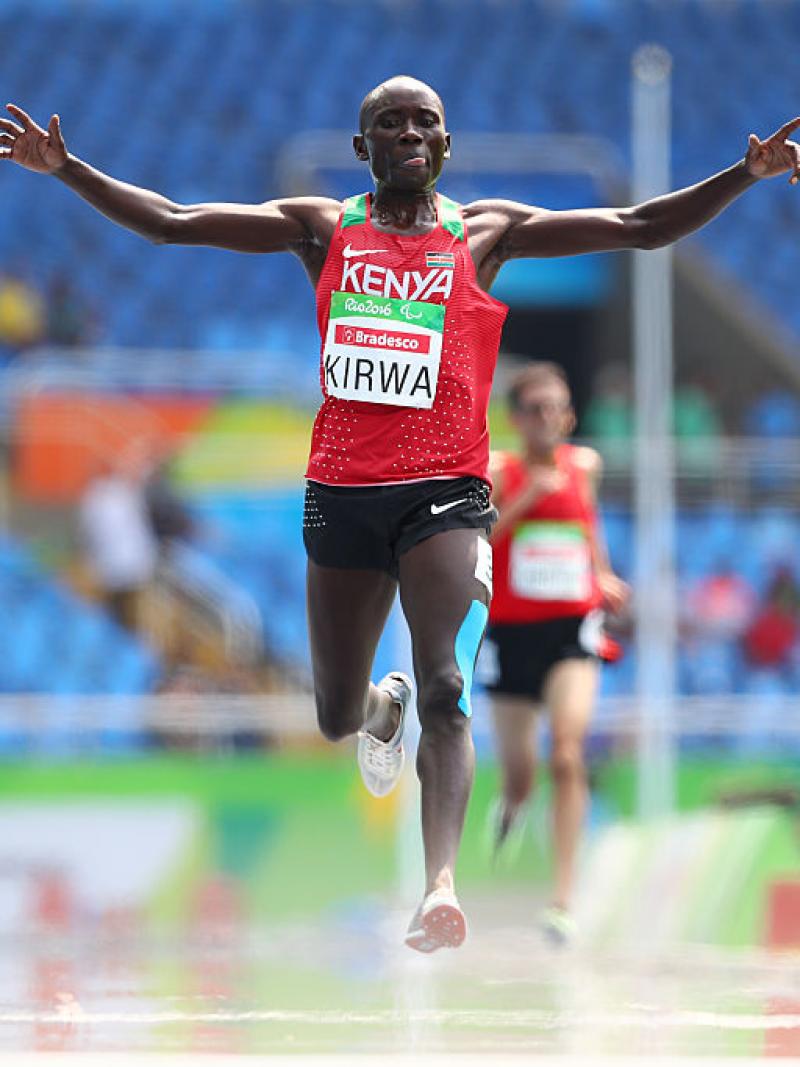Canada’s Nathan Riech following in family’s footsteps
World champion and Tokyo 2020 favourite’s athletics bloodlines run deep 19 Dec 2020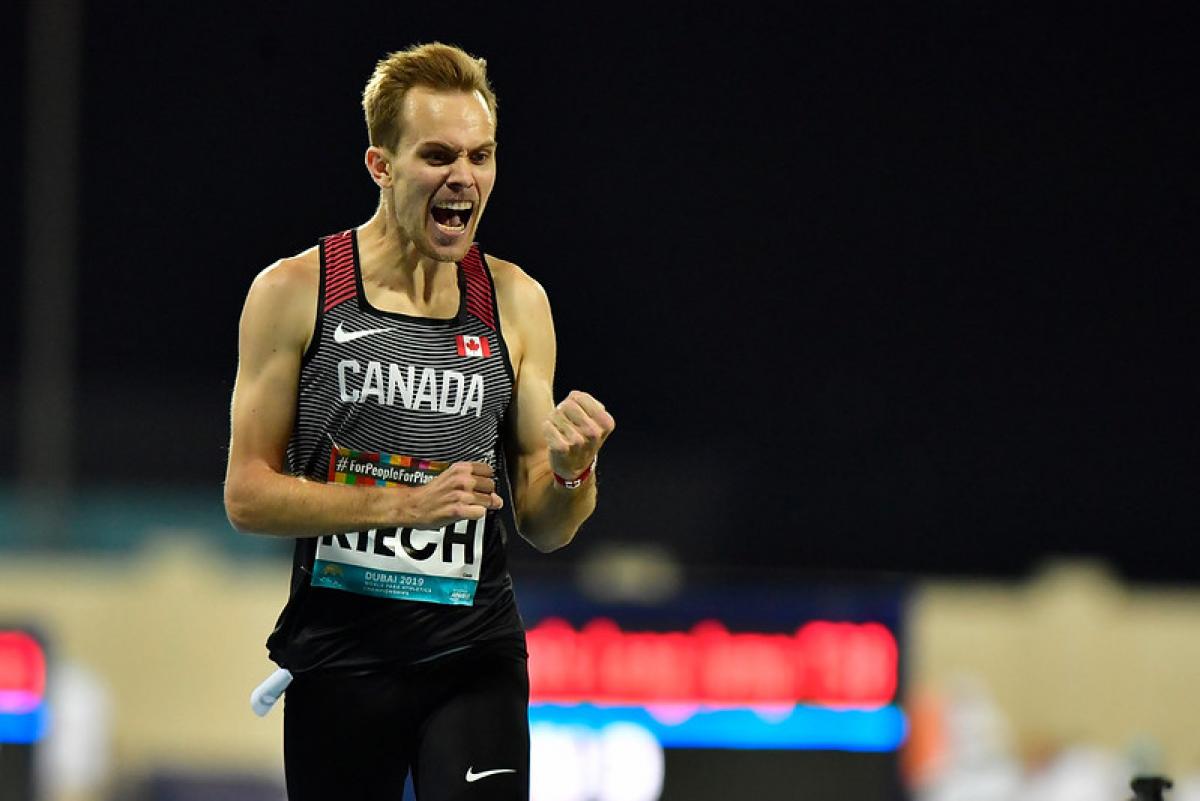
Nathan Riech is a gold medal favourite in Tokyo, one of the emerging stars in Para Athletics and has his unique bloodlines in part to thank for his meteoric rise.
Riech won the 1500m T38 at his first ever World Championship in Dubai, UAE in 2019. In just two short years, Riech has shattered world records in both the 1500 and 800 metre events
Crossing the finish line in Dubai he was overcome with emotion.
“I remember screaming yes at the top of my lungs,” he said.
Riech adds that moment was years in the making, “I had always dreamed about being in the Olympics, but I never thought before I got injured it would be the Paralympics.”
To say sport comes naturally and runs deep in his family would be a massive understatement.
“I knew nothing different from the time I was a toddler. I just grew up at the track. Nobody had to tell me all the work it would take to become an Olympian. I just saw it day in and day out.”
Riech’s mother Ardin Tucker was a Canadian pole vault champion in 2000. His birth father Todd Riech competed in javelin for the USA at the 1996 Olympics in Atlanta. His stepfather played professional baseball.
And the family sports tree doesn’t stop there. Riech’s grandfather was NHL hockey player, Jim Harrison, who in the 1970’s became the first player in professional hockey history to score 10 points in a game.
“I have many athletes in my family. So, it’s always meant so much to me and it almost got taken away.”
When he was 10, Riech was playing golf with some friends. He was standing under a tree when a player from another group whacked a ball from 125 metres away. It went astray and struck Riech in the back of the head.
He suffered a brain injury and partial paralysis on his right side.
The early prognosis wasn’t good.
“The doctor told me that you know Nate you’ll never walk without a limp. You’ll never play competitive sports ever again and that just sent a tingling sensation through my entire body and it sends one through my body now just talking about it.”
Riech adds, “I made it my mission to prove him wrong.”
He worked hard and eventually started competitive running with able-bodied athletes in high school and US college. He wanted to take that as far as he could, so it was only two years ago that he started participating in the Paralympics.
“I think the evolution of why I was in the sport changed drastically. Before, I just wanted to win and that’s all I cared about. Now I saw how much it changed my life.”
Riech is no longer afraid of taking risks. He used to get nervous before races because he was afraid to lose.
“It’s a small failure if you don’t reach the pinnacle. It’s a huge failure if you don’t try.”
Riech gives a lot of credit for his success to his family and the team around him which has helped him turn his mental preparation for races from a weakness into one of his strengths.
“I was cracking jokes before Worlds. I was dancing a little. I was just having fun, smiling and I think that’s one thing that’s made a huge difference.”
He didn’t even get flustered in the race at the World Championship when he was well back with less than two laps to go and disaster almost struck.
“I got tripped and almost fell on my face. I looked back and smiled at the guy who almost tripped me – and I just took off. I thought in my head – I’m not playing this game anymore.
I know I’m the fastest in the field this year and so I am going to show it.”
Riech knows his biggest rivals in Tokyo include former world champion Dion Kenzie of Australia, Ireland’s Michael McKillop - one of the best distance runners of all-time – and his Canadian teammate Liam Stanley.
“I’m going to Tokyo to win the race. I will never run for second or third,” Reich said.
But no matter what the result, after the Games, he plans to host sport development camps to promote the Paralympic Movement. He wants more young people to be able to benefit the way he has.
“I am so thankful for Paralympic sport. It’s meant everything to me.”





